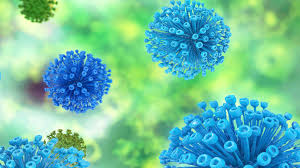For many years now, HIV and AIDS have been of great concern to the whole globe. World AIDS Day, which always falls on December 1, serves as a reminder of the difficulties this threat still presents. Lack of knowledge about HIV and AIDS is one of the key problems with all strategies for combating this threat. The majority of people still see this illness, which is really more of a deficiency condition, with a certain stigma. Inadequate care and treatment are provided as a result of the stigma and labelling at many levels. There is an imperative requirement for urgent treatment and care whenever this condition affects anyone.
Unicef has released a research that throws some light on this illness by stating that over 110,000 individuals, including children and adolescents, passed away globally in 2021 as a consequence of this ailment. The overall number of illnesses exceeded an astounding 300,000 just in one year.
The saddest conclusion is that the majority of kids go unnoticed for several years following an illness. The reaction to HIV/AIDS, or any other disease for that matter, should ideally not be biased towards children, but in nations like Pakistan, kids seldom get the proper medical attention at the correct time. In several areas of diagnosis and treatment, they are currently falling behind adults.
According to the Unicef research, attention to AIDS has deteriorated significantly over the last several years, particularly since the Covid-19 epidemic swept the world. In Pakistan, northern Sindh has seen the highest rates of AIDS spreading to other regions. There have been reports of thousands of HIV-positive youngsters in just one region.
Medical malpractice at both private and public clinics is one of the main factors contributing to this infectious spiral. More and more children are becoming infected by injections and drinks, and as a result of poor sterilization methods, their parents are unable to recognize the issue. When people disclose the infection once it has gotten out of control, it is frequently already too late. Health authorities around the nation, particularly in Sindh, must become aware of this issue's seriousness and take action.
Both preventive measures and the most modern treatment facilities must be in place. Additionally, there is a need for increasing awareness to stop the stigmatisation process since society as a whole and medical professionals alike should treat all illness victims with respect and dignity.

